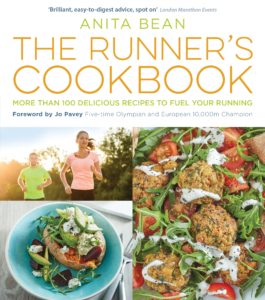Orthorexia: the rising eating disorder in athletes
While a healthy diet is central to optimal performance, for some athletes the quest to eat only the ‘right’ foods can morph into orthorexia, an unhealthy fixation with ‘eating correctly’. What starts as a health kick or desire to shed surplus pounds can spiral into obsessive behaviour. One recent study suggests that as many as 28% of athletes are affected by orthorexia.
If you have ever experienced extreme anxiety after eating a slice of cake, declined a dinner invitation for fear of its impact on your training gains or had to exercise after eating a certain food because you felt so guilty, then you may be affected by orthorexia.
You’re probably familiar with the more commonly known eating disorders, anorexia nervosa and bulimia nervosa, but most people don’t know about another serious eating disorder: orthorexia. It is not defined simply by weight loss or eating too little but rather by an obsession with healthy eating. It differs from anorexia nervosa in that the goal isn’t necessarily thinness or limiting calories but a desire to be pure, clean and healthy.
A defining feature of orthorexia is an obsessive adherence to an increasingly restrictive ‘clean’ diet. Sufferers have a strong desire to maximise their health and will focus on food ‘quality’ and ‘purity’, rather than calories. They have an intense fear of eating anything perceived as unhealthy or ‘unclean’.
Blurred lines
Many athletes weigh their food religiously, track their macros and adhere to self-imposed food rules. However, such strict control can often mask a dysfunctional relationship with food.
Today it is trendy to ‘eat clean’, that is, to follow a ‘food lifestyle’ like low-carb, paleo or vegan. On the surface this seems harmless but it can easily mask an obsession with food. The problem is, in sports where body weight is closely linked to performance, there’s a blurred line between healthy eating and unhealthy obsession.
Unhealthy obsession
Some people are more vulnerable than others. One study published in Eating and Weight Disorders Journal in 2017 found that people with higher orthorexia tendencies scored more highly for body dissatisfaction and perfectionism.
Of course, just because you’ve decided to ‘eat clean’ doesn’t mean you have orthorexia. Problems arise when your eating becomes increasingly restrictive and starts to negatively impact your social life, relationships, self-worth, happiness and wellbeing.
Social Media to blame?
Some blame the rise of social media celebrities who, despite no formal training in nutrition, espouse an ‘eat like me, look like me’ approach. The ‘clean eating’ movement encourages restriction and self-prescribed ‘good’ and ‘bad’ foods. Research published in 2017 found a strong correlation between time people spent on Instagram and symptoms of orthorexia.
Warning signs and symptoms of orthorexia
- Compulsive checking of ingredient lists and nutrition labels
- Cutting out an increasing number of foods (e.g. sugar, carbs, dairy)
- Eating only foods that are deemed ‘healthy’ or ‘pure’
- Afraid to eat anything ‘unhealthy’
- Refusing to eat foods that you don’t know what’s in them or how they were prepared
How to maintain a healthy relationship with food
- Identify your triggers e.g. social media and unfollow people who make you feel bad.
- Resist the temptation to compare on social media
- Spend less time reading health news – it may do more harm than good
- Don’t live in a bubble – spend time with people outside of your sport, with other interests
- Food should not make you scared or anxious – it’s something to be enjoyed and celebrated!
- Make peace with food – let go of ‘food rules’
Where to find help
Orthorexia, When Healthy Eating Goes Bad by Renee McGregor.
https://www.beateatingdisorders.org.uk/
To find a registered dietitian www.bda.uk.com/improvinghealth/yourhealth/finddietitian
To find a registered nutritionist www.associationfornutrition.org
To find a psychologist www.bps.org.uk/psychology-public/find-psychologist/find-psychologist
This is an abridged version of my article, Eating Well or Obsessed with Wellness?, which originally appeared in Cycling Weekly (16th November 2017)
 If you enjoyed this post and want to find out more about sports nutrition, then check out my brand new book, The Runner’s Cookbook. It features more than 100 delicious recipes to fuel your running. With a foreword from five-time Olympian Jo Pavey, the book also provides practical nutrition advice on fuelling before, during and after running, guidance on hydration and supplements, weight loss tips, how to recover from injury, and how to prepare for 5k, 10k, half marathons, marathons and ultra races.
If you enjoyed this post and want to find out more about sports nutrition, then check out my brand new book, The Runner’s Cookbook. It features more than 100 delicious recipes to fuel your running. With a foreword from five-time Olympian Jo Pavey, the book also provides practical nutrition advice on fuelling before, during and after running, guidance on hydration and supplements, weight loss tips, how to recover from injury, and how to prepare for 5k, 10k, half marathons, marathons and ultra races.
